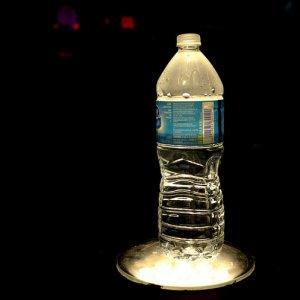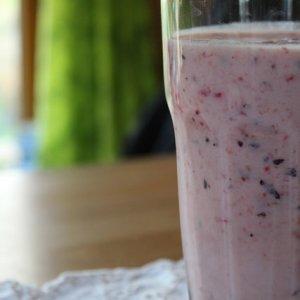How to Properly Recover After Running a Marathon

The feeling of finishing a marathon is fantastic. The sacrifice, competition, and realizing you could do it is very rewarding. However, when all the frenzy has cooled, your body will begin to feel the strain. The reason why this happens is because after the marathon you body is dehydrated, overheated, without any glycogen reserves and badly beat up hormone wise. Fully recovering from the marathon can take time, even over 4 weeks.
Your Body
Muscular biopsies done to runners after a race have shown broken, inflamed muscular fibers and other spread out intracellular substances that indicate a massive tearing up of fiber. All this destruction lasts about 8 to 10 days to fully heal.
After you put your body through such burden, it’s imperative to work right away in your recovery. After the race you will probably feel tired, and with the only goal in mind of lying down on the couch, yet you should avoid this at all cost and continue to move after the race. You can walk or jog softly from 5 to 10 minutes to allow your body to go back to normal, or use a static bicycle .
Surely after the marathon your legs will feel tense, so a good stretching session is required. A combination of dynamic and static stretching that involves the main muscles involved in the race is recommended. A massage session can also help to relieve the pain and muscular injuries that could come. It also helps you to heal better since it aids blood flow, and the elimination of toxins in your body.

After going through the mentioned steps and after a warm bath, get straight to refueling your body. Don’t neglect your nutrition! There are plenty of nutritional strategies for replenishing lost fluids, accelerating the synthesis of hepatic glycogen, repairing muscle damage and restocking nutrients for the muscle.
Keep Yourself Hydrated
In one hour of running you can lose liquid equivalent of 2 to 6% of your body weight. In a marathon, the loss is much greater and it depends on the speed, the time of the race, and even weather conditions. So, yes, you guessed it, the main priority after the race is recovering that lost liquid. To adequately reload the lost water and electrolytes in your body you must weigh yourself before and after the race and drink 120% of the difference between both body weights.

You need to drink water in little zips, throughout the day. You can also get some sports drinks, which are designed for rehydration. They contain a mixture of carbohydrates (glucose, starch, dextrin and maltodextrin) that will help you recharge muscle glycogen.
Have Some Proteins and Carbs Around
It is also important to have good sources of carbohydrates and proteins after you finish the race. They will help you fill your muscle’s glycogen and start the recovery process faster. Actually, in the hours after the race make sure to eat 0.14 ounces of protein for every pound of body weight. Consuming vitamins like A, B & C or multivitamins is also good for you after the marathon since it helps the muscle to recover and it also helps your immune system. The carbohydrates you consume in the hours after a marathon also favor the replenishing of muscular glycogen. This reloading is much more effective if it’s done through liquids like juices, smoothies. or isotonic beverages, since absorption is faster.

- The next 2 hours after the race you should ingests foods with a high glycemic index to replenish the losses of muscle glycogen. Eat foods that are rich in hydrates which are absorbed quickly and generate a rapid increase of insulin in the blood. Insulin favors the entry of hydrates into the muscles, but which foods have a high glycemic profile? Some of them are:
- Jelly beans
- Honey
- Roast potatoes
- Isotonic sports drinks
- Bread, rolls and biscuits
- Fruits, especially pineapple
- Raisins
- White rice

After a marathon your cortisol elevates. We secrete the cortisol hormone in stressful situations so we can adapt in the face of danger. After a marathon, other stress hormones such as epinephrine and glucagon are highly elevated. This is proof that a marathon is an event our organisms interpret as dangerous, since it turns on every defense mechanism in our bodies.
Recovery Phase
The first day after the marathon you should rest completely. The following week you can calmly start your training plan. The objective of this recovery phase is to give your body the necessary time to rest and recover after that intense training and competition. This can actually be really hard for some marathon runners. Nevertheless, it’s important to point out that a recovery phase doesn’t necessarily mean that you should stop running.
You can, for example, have a calm 4 mile jog a week after the marathon, train on a static bicycle the second day of that week, have another 4 mile jog the third day, rest the next day, have yet another 4 mile job the day after and alternate with swimming the next 2. Slowly increase distance the following weeks and make sure to jog with a heart rate at less than 70% of its maximum level.
If you feel any sort of pain in your joints, put some ice over them or take a cold bath, this will help with the inflammation. You should consider that a couple of days after the marathon your legs might feel normal. But even if you don´t feel it, your muscles are still sprained. So be sure to follow our recommendations regarding a slow paced recovery, and avoid injuries.
Related content
- Impact of weather on marathon-running performance http://europepmc.org/abstract/med/17473775
- Immune function in marathon runners versus sedentary controls http://europepmc.org/abstract/med/7564985
- Cytokine changes after a marathon race http://jap.physiology.org/content/91/1/109.short
Latest Articles
 Is Running on a Treadmill Easier Than Running Outside?Runners have their own preferences, whether it is treadmill running, running outside on the road, or exploring trails. So...
Is Running on a Treadmill Easier Than Running Outside?Runners have their own preferences, whether it is treadmill running, running outside on the road, or exploring trails. So... Is It OK to Use Trail Running Shoes on the Road?While trail running shoes can be used on roads, especially in situations where a runner encounters mixed terrains or pref...
Is It OK to Use Trail Running Shoes on the Road?While trail running shoes can be used on roads, especially in situations where a runner encounters mixed terrains or pref... How to Fix Sore Quads After Running?Rest, ice, gentle stretching, and over-the-counter pain relievers can help soothe sore quads after running. Also, ensure ...
How to Fix Sore Quads After Running?Rest, ice, gentle stretching, and over-the-counter pain relievers can help soothe sore quads after running. Also, ensure ... 10 Fruits With The Most Electrolytes to Replace Sports DrinksThese fruits are high in electrolytes such as potassium, magnesium, and calcium, essential for hydration, muscle function...
10 Fruits With The Most Electrolytes to Replace Sports DrinksThese fruits are high in electrolytes such as potassium, magnesium, and calcium, essential for hydration, muscle function...

